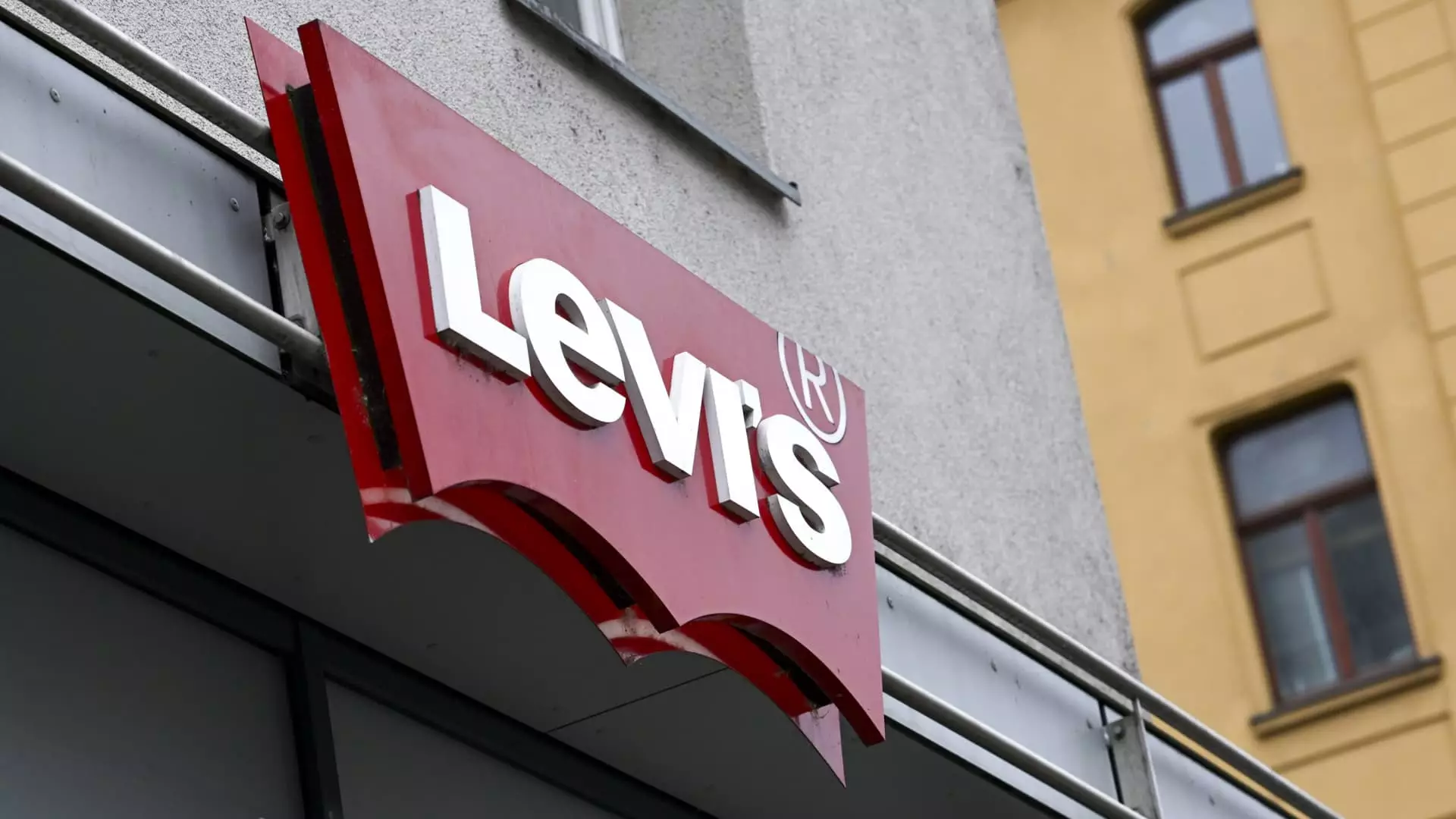Levi Strauss & Co.’s decision to offload its Dockers brand to Authentic Brands Group for a whopping $311 million is nothing short of a radical pivot in the fashion landscape. The move underlines a critical point in the evolution of Levi’s strategic focus, demonstrating both an understanding of market dynamics and a willingness to adapt. This isn’t just a financial transaction; it’s a conscious effort to reshape identity and momentum in an industry that often clings to nostalgia. The sale spurred excitement; after all, Dockers—once a cultural staple—is presented with new life under Authentic’s stewardship.
Riding the Waves of Fashion Trends
The past two decades have watched Dockers wade through fluctuating tides in consumer taste. From its ascendance in the 1990s as the go-to alternative to denim to its recent limping in the U.S. market, khakis have seen brighter days. As denim resurges in popularity, one might wonder if Dockers’ legacy is becoming obsolete. Levi’s CEO, Michelle Gass, oscillates between nostalgia for Dockers’ historical significance and a practical assessment of its underperformance. “Redirecting efforts,” Gass remarked, signals to stakeholders that the firm is staying responsive to market realities rather than stubbornly clinging to an outdated brand.
But let’s be honest: this is more than just a strategic maneuver to cut losses; it’s a recognition of changing societal attitudes toward fashion. The average consumer’s shift towards athleisure and more vibrant casualwear leaves traditional khakis out in the cold. It’s bravery on Levi’s part to actually let go, recognizing the boundaries of what can be salvaged—and this alone elicits a sense of respect for their forward-thinking approach.
The Brand Management Boom
The Authentic Brands Group is a significant player in the reimagining of Dockers, not just as a brand but as an intellectual property powerhouse ready to recycle what was once a fashion sensation. Levi’s announcement has positioned Authentic as a potent agent for international brand expansion. By leveraging Authentic’s extensive portfolio, which includes brands like Reebok and Forever 21, Dockers may yet find itself on a global stage.
This indicates a shift in the strategy for many legacy brands. Rather than struggling to reinvent the wheel, companies are increasingly looking to “brand management” as a solution: a streamlined approach that can enable greater flexibility and adaptation to global markets. The mention of discussions with regional operators across Asia, Europe, and Latin America presents an ambitious outlook, underscoring that Authentic sees value beyond U.S. borders.
Exploiting Untapped Markets
Despite its faltering performance in its home market, Dockers still thrives elsewhere, and this disparity highlights a significant opportunity. Authentic aims to unearth new growth avenues in international markets, signaling a calculated approach to reviving the brand’s appeal. Where Levi’s hesitated due to overlapping offerings and misalignment with its core identity, Authentic is poised to execute an experimental strategy that channels Dockers’ past success into newfound relevance.
But here’s where criticism arises. Should Levi’s have considered a deeper investment in revitalizing Dockers instead of abandoning ship? The brand’s legacy in the realm of casualwear should not simply vanish into history. A potentially cooperative approach—rebranding Dockers under the Levi’s umbrella while introducing new lines or concepts—could have opened various doors without needing an outright sale. In this way, Levi’s might have preserved its historical narrative while still pivoting to contemporary expectations.
The Road Ahead
With a future intertwined with Authentic Brands Group, Dockers stands on a precipice. The heritage of casualwear is rich, yet the path forward is fraught with the challenges of redefining an aging identity. Matt Maddox from Authentic spoke about “reimagining the brand for a new generation,” which certainly stirs anticipation but raises questions about what that reimagination entails. Will the heritage of Dockers serve as a primitive scaffold upon which to build something new, or will it be overshadowed completely by superficial trends?
This is a brave new chapter for many stakeholders involved—from Levi’s laser focus on its direct-to-consumer strategy to Authentic’s mission-driven approach toward brand expansion. The future holds potential dangers as well as treasures, making the saga of Dockers a microcosm of broader changes in the fashion industry. In embracing this transformative deal, both Levi’s and Authentic inevitably position themselves at the forefront of a fashion revolution, but only time will reveal the true impact of their strategies.

Leave a Reply